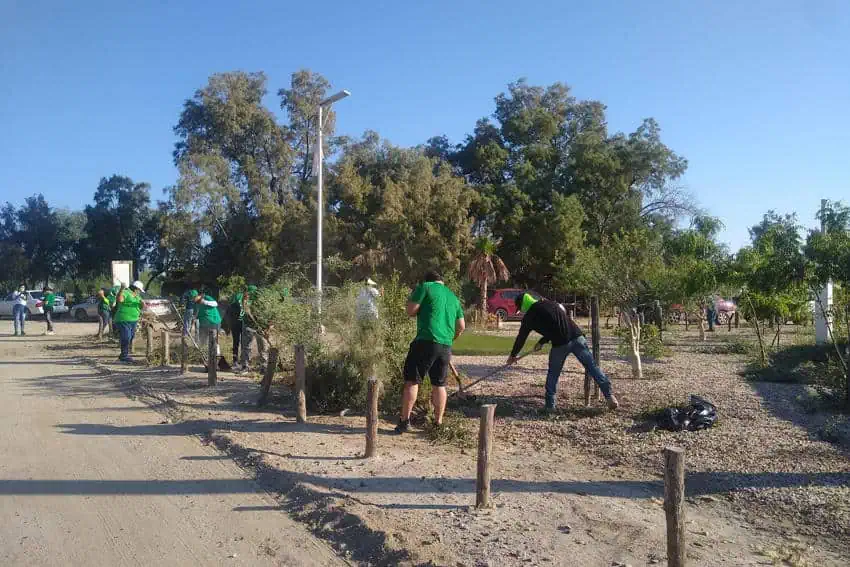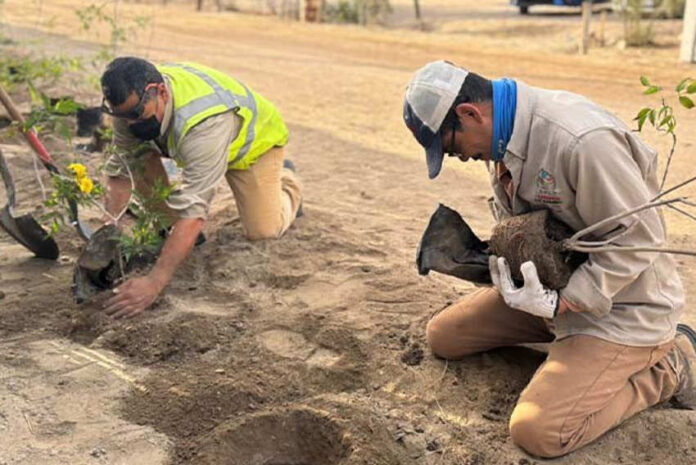La Paz, Baja California Sur, planted over 300 trees in January as part of the Urban Lungs reforestation program, according to head of the General Directorate of Municipal Public Services Aurora Hernández Espinoza.
Trees were planted in the municipal eco-park, a public park in the Flores Magón neighborhood and various other locations around the city and towns in the municipality. Authorities also applied 200 kilograms of mulch to improve soil conservation.

As part of the program, the city’s Public Services’ general director, Daniel Cabral Ramírez, said that the municipal plant nursery in the Eco Park is also receiving 25,000 plants donated by the Proforestal organization. Local authorities plan to distribute these plants across various strategic locations in the city to continue with reforestation efforts.
The Urban Lungs program is a municipal strategy that promotes sustainable practices to enhance the quality of life in La Paz, a city that has one of the worst air quality conditions in Mexico. In some areas, its air quality levels have registered as worse than in notoriously polluted Mexico City.
Pollution in the coastal city is mainly caused by the Punta Prieta thermoelectric plant — which uses fuel oil and emits sulfur dioxide, according to the Mexican NGO Metiches por Naturaleza. The other major source of pollution is auto emissions.
Jaqueline Valenzuela, operational director of the Center for Renewable Energy and Environmental Quality (CERCA), has supported Metiches por Naturaleza’s claim.
“One of the sources of polluting emissions are the power plants of the Federal Electricity Commission (CFE) as well as the cars scattered throughout the city,” Valenzuela said.
The Urban Lungs program seeks to fight these conditions and restore environmental balance in La Paz. Through reforestation and the generation of sustainable public green areas, it seeks to strengthen local communities and restore environmental balance in the city.
For its efforts, the Urban Lungs program has earned La Paz the United Nation’s designation as a “Tree City.”
With reports from Noticias La Paz, BCS Noticias and El Sud Californiano
